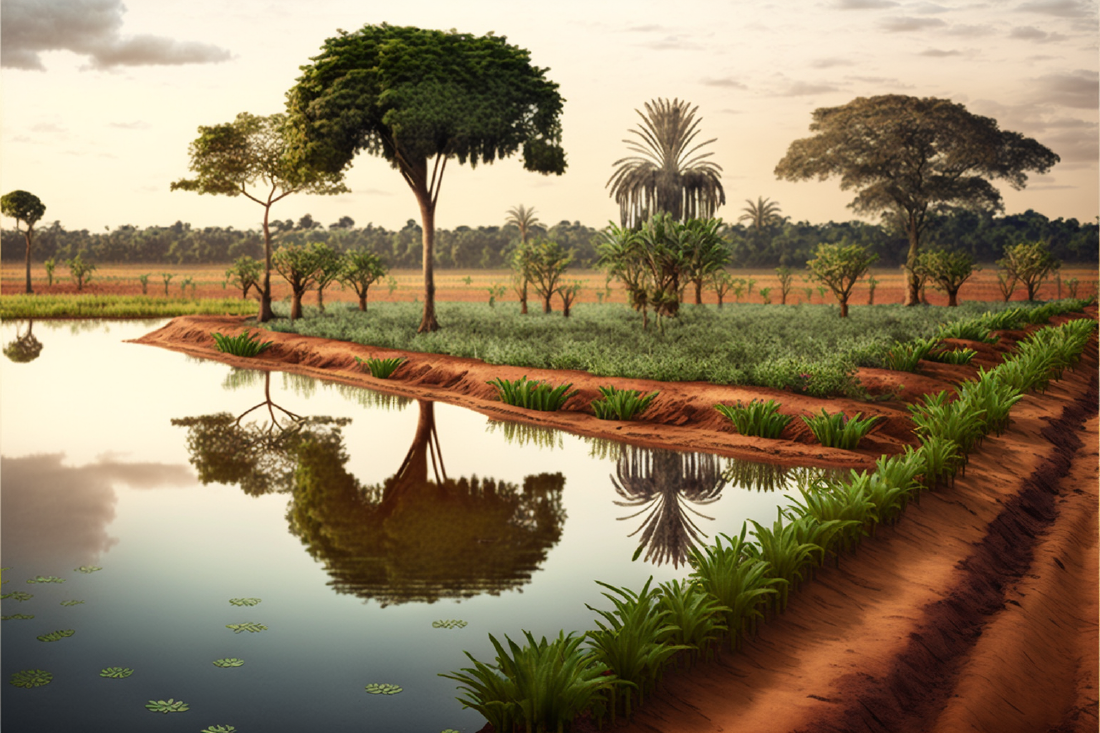It’s been three years since we at the Shockwave Foundation started our mission. We’ve hit our stride and have honed in on our focus by investing in a palette of replicable solutions that help communities adapt to climate risk and enhance food and water security.
Climate science tells us that even with a rapid, radical transformation to low-carbon energy sources we will face ongoing climate change impacts for decades and perhaps centuries. This is alarming. Most people view this as purely a source of disruption and loss. But we embrace a narrative that recognizes and honors these losses, even as we also understand that our communities, ecosystems, and economies are reorganizing and reassembling in complex ways that present new choices that many of us may not even be aware of. We view this as an opportunity to prepare for the larger impacts to come and invest in solutions that build strong families and societies and a more dynamic, healthy relationship with our evolving climate and ecosystems. We see that the choice should not be limited to reducing risk or simply minimizing negative climate impacts. We aspire to see communities that can thrive in spite of climate change, and this is why we hope to inspire innovation and experimentation.
Over the past year, we’ve made significant progress, from sponsoring a seed innovation challenge to spur climate-resilient agricultural solutions, raising the call across the water and agriculture funding space around the necessity to think about longer time climate resilience, identifying new aligned philanthropic partners and co-funding to maximize impact, and doubling down on existing partnerships. We’ve also continued to raise the visibility of organizations striving to achieve transformational change, highlighting the need for private philanthropic funding in this sector.
One of our key partnerships this year has been with the Global Resilience Partnership, co-creating a Resilient Agriculture Innovations for Nature (RAIN) challenge. We’ve also partnered with the Agroecology Fund and the +1 Food and Agriculture Fund to promote sustainable agriculture practices. We’ve expanded our water portfolio to include The Nature Conservancy on the Eldoret-Iten Water Fund to implement sustainable soil and water conservation measures. We’ve also funded Collaborating for Resilience (CoRE), engaging multi-stakeholder dialogue to promote sustainable resource management.
We’re also proud to continue our partnerships with Blood:Water, Saha Global, Root Capital and the +1 Water Fund, as well as cross-cutting collaborations with organizations like Catholic Relief Services’ Blue Harvest program and the Foundation for Community Development and Empowerment (FCDE). We’re pleased that the Pacific Institute, another long term partner, is making significant progress developing its message that water and climate are interlinked and governments and users must develop climate-smart policies when considering any form of water use.
In addition to our partnerships, we’ve made impact investments in companies like TPG Rise Climate Fund, Horizon Environment and Climate, and Greenbacker Renewable Energy Company to support carbon aversion and sustainable practices in key industries.
As we look to the future, we recognize the need to think long-term, with a focus on sustainable solutions led by local communities. It’s not enough to deliver services to people today; we must build programs that will address needs 10, 20, and 30 years out. True partnerships between funders and implementers are crucial in achieving this goal. As we work towards building resilient communities that can thrive in spite of climate change, we hope to inspire innovation and experimentation in the years to come.
